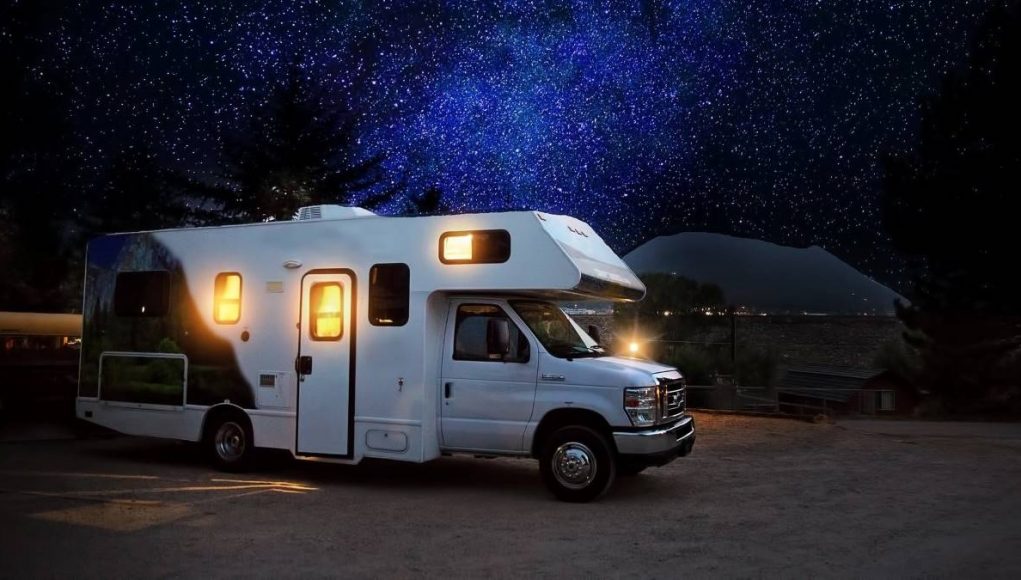Your motorhome might be the second most expensive purchase you decide to make in your life – right after your actual house.
As your own little house on wheels is constantly exposed to outside conditions and potential obstacles during your trips, you might want to find out more about insurance policies. This way, you can safely travel around the countries and explore new places in comfort and peace.
Just like for regular cars, motorhome insurance is a legal requirement, which means that there is no way to use your RV without it. But you still have to choose your service provider. Therefore, to help you make the best possible choice, here a few useful pointers you might want to know about before choosing your RV insurance.
Part-Time or Full-Time Insurance?
Part-time motorhome insurances usually include the possibility of vacation liability coverage – responsible for covering any damages or injuries that may occur in your RV during a short trip. On the other hand, full-time motorhome insurance provides broader liability coverages, protecting you for an extended period. It supports financial matters related to personal and medical payments as well as loss assessment. For instance, if you or your passenger get injured in an RV accident, the insurance will cover the health expenses from the funds included in the medical payments category.
How Much Does Motorhome Insurance Costs?
Your RV insurance cost depends on several factors related to the driver and the vehicle’s condition. However, it doesn’t mean that if you decide to buy one of the used motorhomes for sale will demand significant amounts of money to cover the insurance payments. On the contrary – the more expensive the vehicle is, the more funds you will need to afford an insurance policy.
Below are some other vital aspects which are taken into consideration during insurance cost assessment:
- Driving history with any possible insurance claims you might have made;
- Your experience with driving a motorhome – the longer you’ve been using this vehicle, the more likely you are to get a cheaper deal;
- The model of your RV – high-quality motorhomes are more expensive to insure;
- Expected and existing annual mileage – with higher numbers, you can expect to pay more. But if you only use your RV for short trips during the season, it might bring your costs down;
- A good storage location, such as an at-home garage, can help you save even £100 annually. This aspect can be taken into consideration while choosing premium insurance offers.
What Are the Main Types of Motorhome Covers?
There are three main types of insurance for your RV that you might want to consider:
- Third-party – the most basic form of insurance you’ll need to drive on UK roads. It covers the cost of the compensation of the injured part and the repair expenses of both vehicles in case of an accident.
- Third-party + fire and theft – this option offers the same coverage as the third party, plus it protects you financially if your RV gets stolen or destroyed by fire.
- Fully comprehensive – it includes all of the accidents mentioned above and also covers any damages caused by your own fault. Some motorhome insurers offer fully comprehensive solutions as an add-on to a policy. In that way, you can extend the services and be fully insured just for the time of your trip.
Depending on your preferences and your motorhome’s purpose, you might want to modify your insurance and adjust it to the season. If you choose to travel mainly during summer, extend your policy plan to full comprehensive services only during June, July, and August. This way, you can comfortably drive to your dream destinations and worry less about unpleasant surprises.
How to Lower the Cost of Insurance?
Your motorhome insurance policy can consume a significant part of your budget. Fortunately, as a motorhome owner, you can join motorhome clubs. Membership in this type of organization might help you get several discounts from your RV insurance providers.
Another way of lowering your motorhome insurance costs is to secure the storage place of your vehicle. You might want to add some security devices such as additional burglar alarms or even cameras. This way, some insurance companies will be ready to offer you a discount.
The Bottom Line
A good motorhome insurance policy will allow you to travel with confidence. We cannot predict many unpleasant situations while on the road, but we can stay prepared. Don’t hesitate to extend your insurance plan to a fully comprehensive type, especially in the case of a long and distant travel destination. Make sure to read your policy documents thoroughly to know what your insurance covers to avoid unpleasant surprises when a serious matter occurs. You can also contact your local agent and set up a meeting to learn more about your granted rights. This is not something to be neglected!






